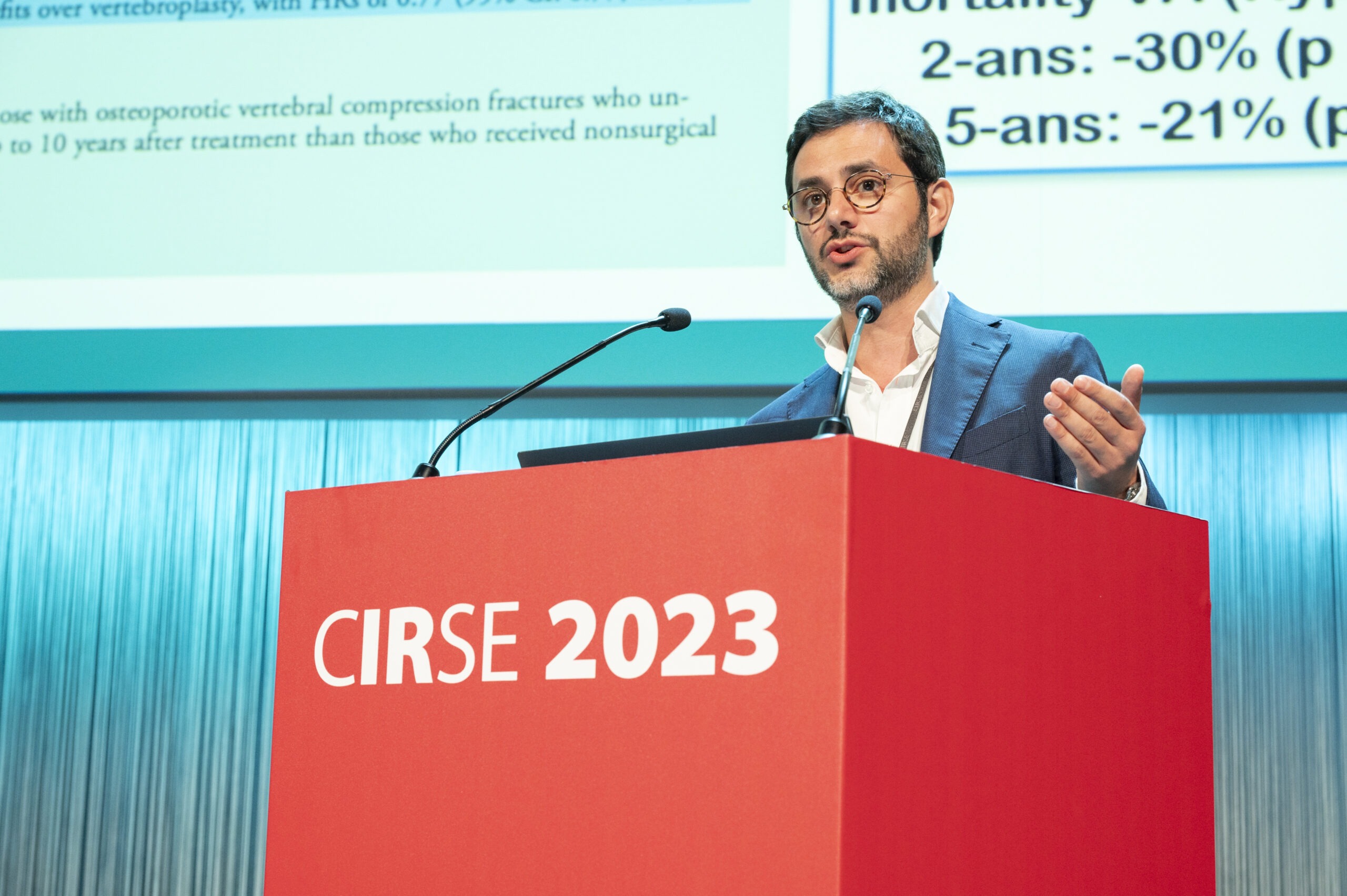January 5, 2024
CIRSE’s new research project, BOREALIS, the BOne metastases REgistry for patients undergoing percutaneous cryoAbLation with curatIve purpoSe, hopes to provide evidence in terms of local tumour control in a population of patients with bone metastases undergoing cryoablation with “curative intent”. CIRSE hopes to showcase the versatility of interventional oncology by providing evidence supporting a comprehensive treatment protocol that includes biopsy, cryoablation and bone consolidation for fracture prevention within the same interventional session.
This feasibility study will enrol up to 50 patients. Inclusion of first patients is envisioned for late 2024.
As for previous studies scientifically sponsored by CIRSE, clinical project management is delegated to CIRSE’s contract research organization, Next Research.
The initiator of the project is Dr. Roberto Luigi Cazzato (University Hospital of Strasbourg, France), who will be acting as coordinating investigator and will chair the BOREALIS steering committee to provide scientific guidance during the course of the study.


